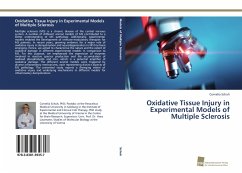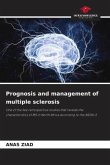Multiple sclerosis (MS) is a chronic disease of the central nervous system. A number of different animal models of MS contributed to a better understanding of MS pathology. Additionally, experimental models enabled the development of immune-modulatory therapies for MS patients. In recent years, growing evidence for a major role of oxidative injury in demyelination and neurodegeneration in MS has been emerging. Hence, we aimed to characterise the nature and the extent of oxidative damage in different experimental models in comparison to MS. For this purpose, we emphasised the expression of enzymes involved in reactive species production and the accumulation of oxidised phospholipids and iron, which is a potential amplifier of oxidative damage. The different animal models were triggered by diverse inflammatory mechanisms, each representing distinct aspects of MS pathology. The presented study reports a diverging extent of oxidative injury and underlying mechanisms in different models for inflammatory demyelination.
Bitte wählen Sie Ihr Anliegen aus.
Rechnungen
Retourenschein anfordern
Bestellstatus
Storno








